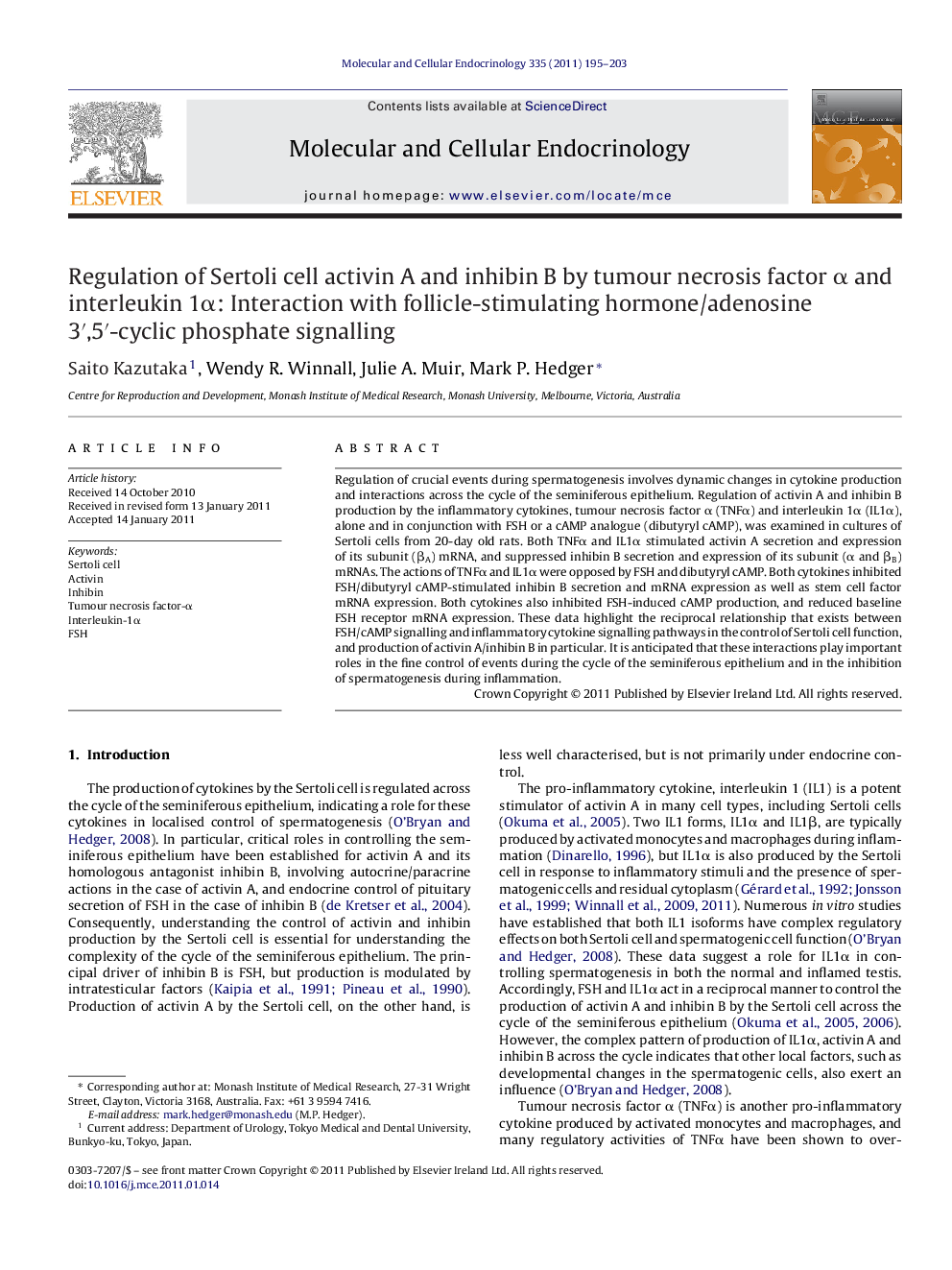| Article ID | Journal | Published Year | Pages | File Type |
|---|---|---|---|---|
| 10956345 | Molecular and Cellular Endocrinology | 2011 | 9 Pages |
Abstract
Regulation of crucial events during spermatogenesis involves dynamic changes in cytokine production and interactions across the cycle of the seminiferous epithelium. Regulation of activin A and inhibin B production by the inflammatory cytokines, tumour necrosis factor α (TNFα) and interleukin 1α (IL1α), alone and in conjunction with FSH or a cAMP analogue (dibutyryl cAMP), was examined in cultures of Sertoli cells from 20-day old rats. Both TNFα and IL1α stimulated activin A secretion and expression of its subunit (βA) mRNA, and suppressed inhibin B secretion and expression of its subunit (α and βB) mRNAs. The actions of TNFα and IL1α were opposed by FSH and dibutyryl cAMP. Both cytokines inhibited FSH/dibutyryl cAMP-stimulated inhibin B secretion and mRNA expression as well as stem cell factor mRNA expression. Both cytokines also inhibited FSH-induced cAMP production, and reduced baseline FSH receptor mRNA expression. These data highlight the reciprocal relationship that exists between FSH/cAMP signalling and inflammatory cytokine signalling pathways in the control of Sertoli cell function, and production of activin A/inhibin B in particular. It is anticipated that these interactions play important roles in the fine control of events during the cycle of the seminiferous epithelium and in the inhibition of spermatogenesis during inflammation.
Related Topics
Life Sciences
Biochemistry, Genetics and Molecular Biology
Cell Biology
Authors
Saito Kazutaka, Wendy R. Winnall, Julie A. Muir, Mark P. Hedger,
